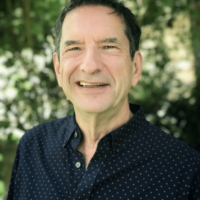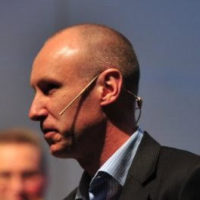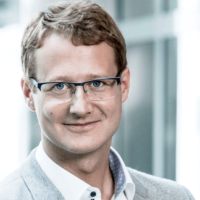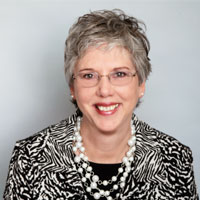The Latin phrase E pluribus Unum, literally translated as “Out of many, one,” was the original motto of the United States, adopted by an Act of Congress in 1782. The motto refers to the emergence of a single nation out of the union of the 13 original colonies, and is emblazoned across the Great Seal of the United States.
As time went on, it also came to refer to the “melting pot” nature of our country – a place where people could come from anywhere in the world to find freedom, sanctuary, a new beginning, and open space. People came from all over seeking a land where anything could be possible – where dreams could be realized.
Yet more recently, instead of e pluribus unum – “out of many, one” – we seem to be moving towardse pluribus multis – “out of many, many.” Speaking for myself as a pretty aware guy who considers himself a progressive global citizen, I still sometimes catch myself assuming differences and division before similarities and connections. I’m not proud of that, but it’s the honest truth.
Culturalization Runs Deep
Culturalization runs deep within us – deeper than most of us want to acknowledge. Times like these call us to go deeper inside to root out our own fundamental beliefs about how the world works. And to ask ourselves very directly, “Are these beliefs in alignment with who I wish to be and how I want to show up in the world?”
Most of the readers of this column have an interest in transformation – perhaps even a commitment to helping transform our world. Transformation is an “inside out” process, whether within an individual, a family, an organization, a culture or society, or a country. It starts with a shift in fundamental perceptions, beliefs, awareness, and understanding. Our fundamental worldviews have profound influence on our choices, decisions, and actions.
However, our fundamental worldviews are rooted much deeper within our psyche than we often realize.
In other words, no matter how aware you or I may be, most of us still have some deep beliefs, patterns, and worldviews that run counter to what we like to tell ourselves that we believe. Getting down to those core beliefs and perceptions is part of our work now if we are going to reverse the trend towards e pluribus multis and move towards e pluribus unum in our families, our societies, our countries, and even our world.
The Fundamental Worldview that Shapes Everything
The most fundamental worldview that shapes every choice we make is our belief about whether or not everything is connected to everything else.
Either we believe that every person, family, culture, and situation or circumstance is separate and distinct from every other, and coincidences are no more than that. Or we believe that, in some way, everything is connected to everything else, even though the connections may not be obvious at first. Therefore, we believe that there are no coincidences; instead, when things happen in relationship to one another, we recognize them as synchronicities.
So to summarize, either we imagine the world as a grid of unconnected dots, or we see it as a matrix of relationships where every dot is connected to at least one other.
Whether or not we are aware of it, this fundamental worldview determines how we look at everything. Furthermore, how the mass consciousness views the world – as connected or as separate – ultimately determines our collective social and political choices as well as our overall sense of safety and well being.
In the end, I would also argue that the worldview that we ultimately choose as a mass consciousness will determine whether we thrive or self-destruct as a global civilization.
Some might say that’s a bold statement. Yet the more I study how the world works as energy in motion, and the more I work with people who are committed to creating a world that works for all, the more I understand this as a fundamental truth.
Polarities in Our Thinking
The contrast between these two fundamental worldviews is playing out center stage in the results of last week’s mid-term elections in the United States. In various ways, it’s playing out all over the world.
It manifests as the polarity between nationalism (“We take care of our own,” or “Every woman/man/company/country for themselves.”) and globalism (“We’re all in this together, and we need to take care of one another and our planet.”).
It shows up in the polarity between progressive and traditionalist thinking. On one end of the spectrum are those who are curious about the world – those who want to expand their understanding and awareness beyond their own circles, and to exchange knowledge and best practices with others.
At the other end of the spectrum are those who hold fast to a smaller, familiar, predictable, and protected way of living, and surround themselves only with people like themselves, where their beliefs and assumptions are less likely to be challenged.
Those at the extremes of the progressive-conservative or traditionalist spectrum actually fall into the second category. They view the world through a rather narrow lens. By nature, those closer to the middle of the spectrum are, in varying degrees, more open and curious.
Why It’s Important to Recognize Our Own Subconscious Worldviews
This brings us back to the critical importance of our awareness of our own deep subconscious worldviews. For example, I like to think that I’m always open, curious, and generous in spirit with everyone. Yet the reality is that from time to time I still catch myself in reactions that I’m not proud of. Does this ever happen to you?
Recognizing this fundamental worldview – that either everything is connected or everything is separate – in ourselves and others can help us understand how and why people make certain choices, take the stands they take, and embrace particular philosophies and movements.
At the most basic levels of human behavior, when our deep subconscious conditioning is to view everything as separate from everything else, we are more likely to compete for power and dominance as a way of survival. Coming from this worldview, when we first encounter another person or situation, our initial motive – conscious or unconscious – is to find out whether this person or situation is good or bad, friend or foe.
This worldview fosters a belief that our ability to survive depends on how good we are at fending off attackers. At its extreme, it supports living in protection and survival modes all the time, ready to defend what we perceive to be ours, attacking anything we may perceive as a threat, and being always on guard so that nothing can be taken from us.
However, protection and survival are short-term strategies, at best.
On the other hand, when we come from a worldview that everything is connected to everything else, we are more likely to take a different approach. When faced with challenging situations, our initial response might be to open communication and build or strengthen relationships. From this perspective, we are more likely to understand that thriving is actually only possible through healthy relationships and interactions with others.
When we see the world as a matrix of connections, we are more likely to acknowledge that we need each other. It doesn’t mean that we always necessarily likeeach other or agreewith each other, but that we’ve found a way to co-exist. Building relationships is the key to nearly everything.
It’s also not just about our relationships with other people; it’s also about our relationship with our environment and the planet. When we view our entire world as an interconnected ecosystem, and when we understand that the ultimate well being of every person and every part of the system is dependent on the well being of all, we make different choices and take different actions.
When our focus is on building relationships, we start building a future together instead of focusing on our grievances. We build alliances and expand awareness. We take care of the whole – the whole of individuals as well as the whole of the collective.
The Perceived Polarity of Nationalism vs. Globalism – It’s Only a Polarity if We Make It One
Which brings us back to the current furor over nationalism vs. globalism. The current mass consciousness trend is to view nationalism and globalism as polar opposites instead of complementary perspectives.
We actually need both. We need the best of what nationalism can bring – the unique strengths, characteristics, and ways of living and engaging from each country. There is great richness in the diversity of languages, traditions, wisdom, and perspectives from every corner of the world. When we only focus on globalism – on becoming “one,” – we lose the beauty and brilliance of “individual.”
At the same time, when we focus only on nationalism, borders, separation, and the resulting “us vs. them” mentality, we deny the reality that all of the countries, cultures, religions, skin tones, and creatures of the world share one common home. We are all citizens of Planet Earth.
Planet Earth is the only home we have. It takes all of us together in cooperation with one another to take good care of our common home. And because we all share this common home, we are all impacted on some level by everything that happens everywhere in the world. Everything. Everywhere.
We need the best that nationalism has to offer as well as awareness of our individual roles as global citizens for the care and nurture of our common home.
What We Can Do
And so we come back to transformation as an “inside out” process. We cannot control the choices and actions of others. Most of us are not in such positions of influence that our voice alone will shift policy-makers’ decisions.
However, what we can do is keep challenging and stretching our own fundamental beliefs – our deep subconscious conditioning – about how the world works. That takes discipline and focus on our part as individuals.
We can look for how the dots connect between people, circumstances, choices, and actions at all levels of society. We can be honest and compassionate with ourselves as well as others when we and/or they react from a perspective of separation and fear instead from a perspective of connection and generosity of spirit. And then invite another perspective.
We can keep stretching ourselves. We can stand up for policies and structures that support the well being of all. And we can create environments where people – especially people from diverse perspectives, traditions, backgrounds, and cultures – can experience connection with one another with no other agenda than that.
The mass consciousness shifts as we shift. Believing that everything is connected to everything else is not enough. We have to live it from the core of our being. That’s the only way we can shift the tides from e pluribus multis to e pluribus unum.
~ ~ ~
If you enjoyed this blog post and found it helpful or inspiring, please share it with your friends on social media by clicking on the icons below. You are also welcome to make a comment below.
You may subscribe to our free weekly newsletter by clicking here.
Related Articles and Blog Posts:
- There Were No Borders In the Middle Ages by Matthew Gabriele (from Forbes Magazine online, November 5, 2018)
- Ari Wallach on Longpath – 3 Ways of Thinking That Can Change How We Approach the Most Challenging Issues of our Times
- Consciously Choosing What We Create and What We Allow to Die
- “The Overview Effect” – A Beautiful Film and a Critical Worldview Shift For Our Time





































